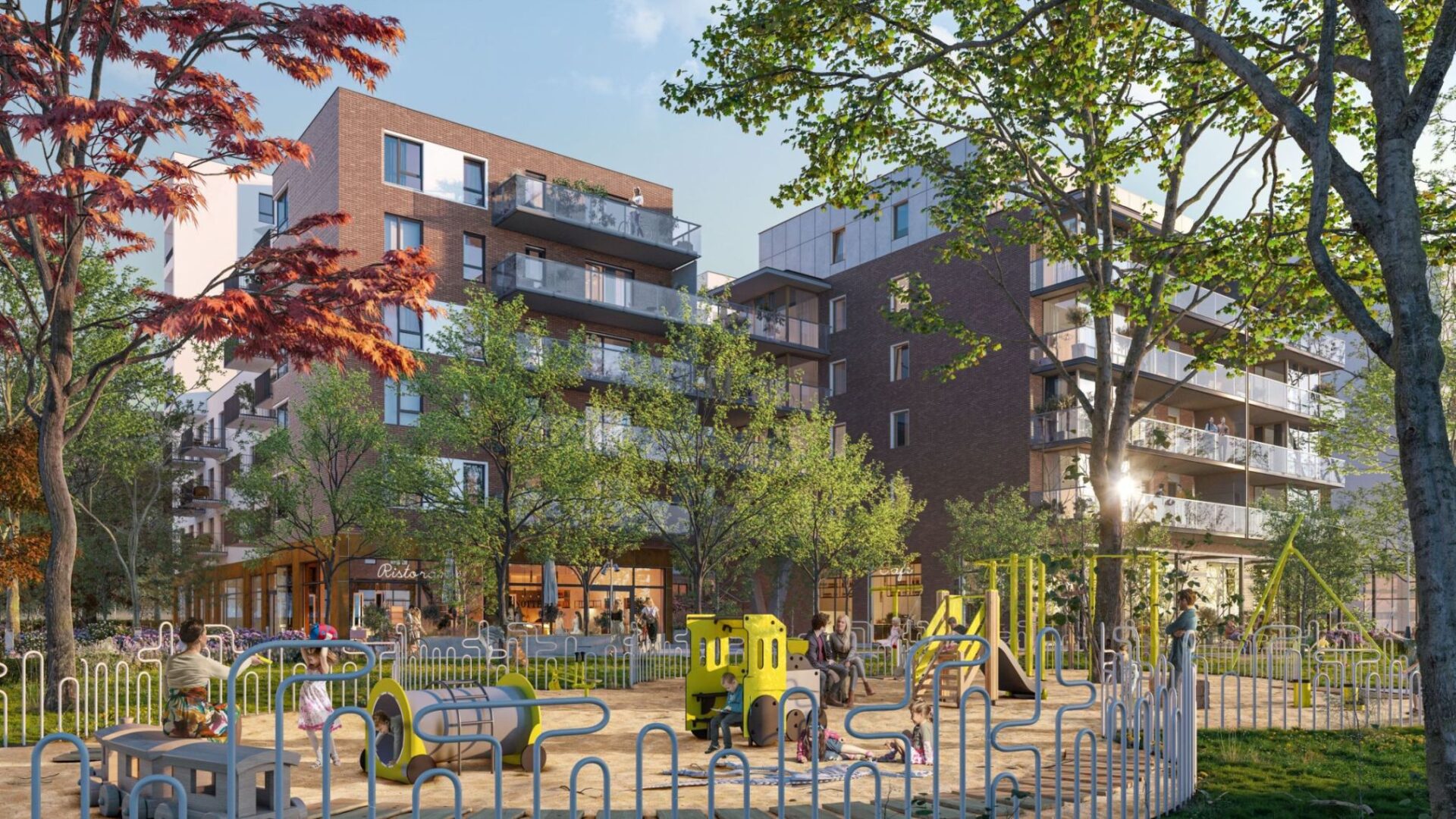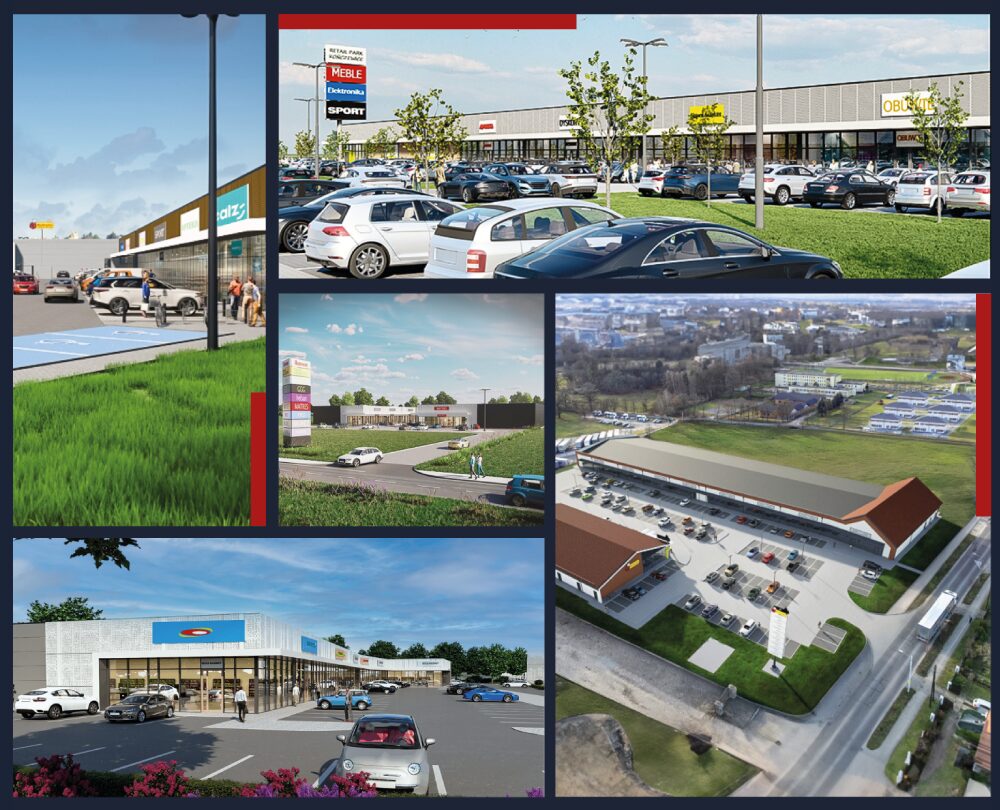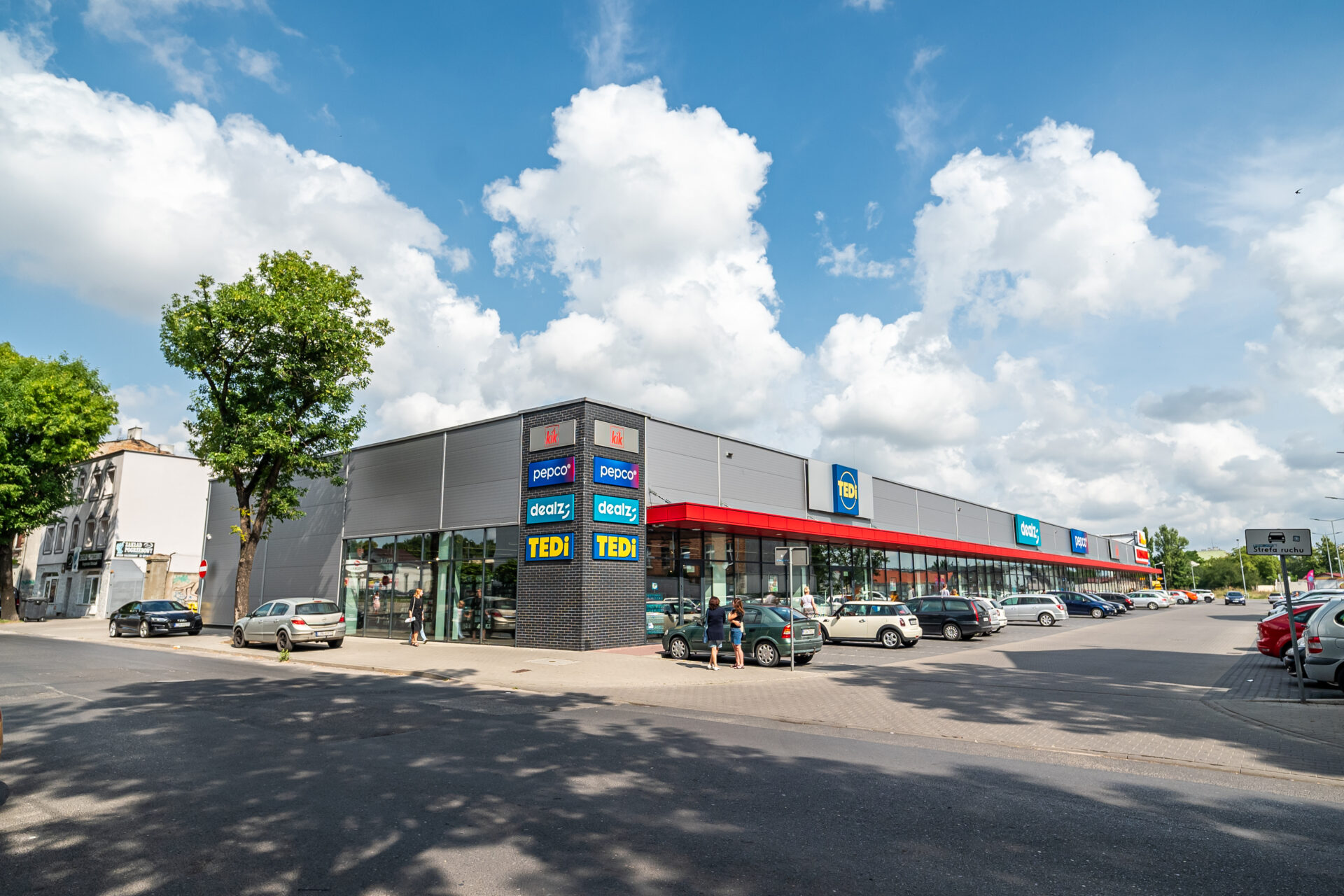The 2024 edition of MAPIC reaffirmed its role as an essential business platform in an ever-changing industry. Despite challenges in the retail sector, the three-day event showcased the sector’s strong fundamentals and unwavering resilience. It attracted 4,400 participants, including 1,800 retail representatives—a 12% increase from 2023. The event’s significance was underscored by the presence of major international players such as AEW, CBRE IM, Pradera, Klepierre, URW, Ingka Centres, Nhood, Altarea, Hammerson, IGD, Apsys, Mercialys, and Sonae Sierra
This year’s MAPIC also featured notable participation from Middle Eastern players, including Seven, Diriyah, and Cenomi, who showcased their projects. It also spotlighted international large-scale developments, such as Entrecampos and Grande-Synthe, the latter being the first project announced by the new partnership between Nhood and the Banque des Territoires.
With an expanded area and a new space dedicated to brand licensing (IP), LeisurUp, the zone dedicated to leisure and immersive experiences, brought together leading players such as Bandai Namco, Citywave, Cités Immersives, Hasbro, Dama Dreams, Dedem, Hupalupa, Smiley, QubicaAMF, Pausa, TF1 Licensing, Universal, Walltopia, and Zero Latency VR. Numerous conferences and sessions held over the first two days provided a comprehensive overview of market trends, featuring many exclusive international speakers.
The event has once again proven to be a key platform for identifying trends, forging connections, and showcasing innovations. Participants are already looking forward to the next edition, scheduled to take place from Tuesday, 4 November, to Thursday, 6 November 2025.
Trends in the Commercial Investment Market
The retail real estate market was a focal point of this year’s MAPIC, with a strong emphasis on investors’ perspectives regarding retail market trends and outlooks. Two dedicated sessions delved into analyses from international investors, highlighting their views and strategies in an evolving environment. These sessions revealed an optimistic vision of the resilience of retail as an asset class. The session “Investor Sentiment: Retail Back in the Spotlight in Europe?” featured speakers such as Beatrice de Quinsonas Drouas, Director of Research at BPCE Solutions Immobilières; Mathieu de Mallman, Global Head of Retail and Healthcare at AXA IM ALTS; Eric Decouvelaere, Head of EMEA Urban Destinations at CBRE Investors Management; and Romain Muller, Head of Investment Management Retail at Union Investment. A European study presented by BPCE Solutions Immobilières revealed that, while investment volumes are declining across office, retail, and logistics asset classes, retail has proven the most resilient, with only a 10% drop. Retail investment has been especially driven by the strong performance of the Italian, Portuguese, and Spanish markets, alongside robust results in the UK.
The study also highlighted significant disparities in commercial rent prices between countries and cities, though yield rates remained relatively stable, ranging from 3% to 5.50%. BPCE Solutions Immobilières noted that the retail investment market is undergoing a profound transformation in 2024-2025, characterised by renewed momentum and radically different strategic approaches. There is now a clear distinction between the retail of 2019 and that of 2025. While the previous era equated the opening of retail spaces with guaranteed success, the current landscape is marked by extreme selectivity and a deep understanding of economic dynamics. Investors are returning to the market with growing volumes, particularly in Southeast Europe and the UK, adopting an opportunistic strategy centred around winning concepts.
Looking ahead, the 5-10-year perspective outlines a commercial landscape where only the most high-performing retail spaces will survive. This increasing polarisation underscores the value of well-managed assets. The retail transformation is accompanied by a 4% increase in footfall, with a now indispensable “asset-by-asset” and “country-by-country” approach. Investors understand that success is no longer linked to the size of retail space but requires high-level operational expertise, from capital expenditures to operational expenditures. In this economic environment, inflation is no longer the primary concern, allowing for reinvention. The retail market of 2025 will become a complex ecosystem where attracting top brands, creating the right concepts, and improving customer experiences are essential. This transformation demands a long-term strategic vision, adaptability, and an in-depth understanding of market changes, transitioning from a focus on expansion to creating value through experience and operational excellence.
Urban Regeneration and Mixed-Use Projects
Rebuilding existing structures and designing for mixed-use functionality have become essential components of international development projects. This year’s MAPIC once again introduced participants to urban regeneration projects where retail serves as a crucial link between different programmatic activities. The Retail and Urban Regeneration Summit highlighted projects such as Brent Cross Town, Entrecampos, Alverca, Grande-Synthe, Diriyah, and Spazio Quadrilatero, demonstrating the centrality of placemaking in project design.
The standout project at this year’s event was Diriyah Square in Riyadh, Saudi Arabia. The sheer scale of this development was barely captured by the displayed model. Located 15 minutes from Riyadh, this 14-square-kilometre urban project draws inspiration from the birthplace of the Kingdom and its historical heritage as a UNESCO World Heritage site. Designed to embody the three pillars of the nation’s strategic vision—a vibrant society, a thriving economy, and an ambitious nation—Diriyah Square merges the essence of Al Turaif with modern aspirations, using history to build the future. The development is set to become a luxurious suburb south of Riyadh, integrating museums, schools, hotels, residences, retail spaces, parks, and offices. With a $62 billion investment, 178,000 direct jobs, four metro stations connected to Riyadh, and an ambitious goal of Leed Platinum certification, the project is slated for completion in 2027.
During the keynote by Eric Costa, President of Citynove, titled “What if Emotion Was the Ultimate Parameter in the Retail Equation?”, the audience was introduced to a laboratory approach taken by Galeries Lafayette’s real estate arm to analyse and improve customer journeys within its stores. By working with academics and semiologists, Citynove adopted a near-scientific method to understand retail dynamics, exploring questions such as why we buy fashion, why we leave our homes, and why we press the lift button to close the doors faster. These seemingly trivial behaviours reveal deeper emotional and psychological patterns. Fashion, for instance, reflects our projection of a better future and fulfils a need for optimism.
Brand Expansion in Retail and Food & Beverage
MAPIC serves as a unique platform for retailers to connect with property owners and managers to create dynamic and attractive urban and commercial spaces. To enhance this role, MAPIC launched the International Brand Expansion Observatory, a guide published during the event, listing over twenty international brands with significant expansion plans across France, Italy, Spain, Germany, and the UK. The Retail Gallery within the exhibition and the brand pitch sessions allowed participants to engage with emerging brands that will shape the future of retail in the coming months. The French market remains highly dynamic and attractive, with nine of these brands planning expansions in France, while five are French brands targeting international growth. Noteworthy brands include PD Paola, Dune London, Lucid Motors, % Arabica, La Bottega del Caffè, Goiko, Sosandar, DJ Lab, and New Balance.
The conference sessions also provided a platform for brands to share their experiences in international expansion. In the session “Retail Without Frontiers,” Salomon and JD Sports illustrated their global development strategies. Salomon, a French brand established in 1947 and originally specialising in ski equipment, has gradually transformed into a multi-sport brand now under Amer Sports. Pascal Clausse highlighted the importance of thorough preparation, noting that a poorly prepared brand risks wasting time and money. JD Sports, originating in the UK in 1981 and now operating in 36 countries with 4,450 stores, underscored the need to understand local market dynamics. Both brands prioritise strategic flagship locations in major cities while tailoring their formats to each market.
The keynote session on Food & Beverage expansion featured Alan Francis Honan, VP and Head of International Development at Wingstop, and Arnaud van Coppenolle, Senior Director of International Development at Krispy Kreme. Krispy Kreme aims to become the most beloved sweets brand in the world by leveraging an omnichannel strategy combining company-owned stores, franchises, and convenience outlets. Known for their freshly made, hot doughnuts, the brand has grown from 20 to 40 international markets within three years, with plans to reach 100,000 points of sale globally. Markets are chosen based on criteria such as a substantial middle-class population and demand for convenient, comforting products.
Inclusivity in Retail
Reflecting societal changes, MAPIC 2024 highlighted the increasing importance of inclusivity in retail projects and offerings. This shift provides opportunities to connect with diverse audiences, bridging gaps in accessibility and social exclusion. Inclusive retail fosters unique consumer relationships while demonstrating that business and social conscience can coexist.
One keynote speaker, Didier Roche, founder of Dans le Noir?, shared the success story of his immersive restaurant concept where diners eat in complete darkness, guided by visually impaired servers. Roche emphasised that designing for people with disabilities often creates universally accessible concepts that appeal to all audiences.
The MAPIC Awards also celebrated inclusive retail initiatives. Ingka Centres’ One Drop Store in Wuxi stood out for its creativity and inclusion, offering professional training and workshops for people with disabilities. Free Form Style, an inclusive fashion brand from Spain, was recognised for rethinking garment design to meet the needs of people with disabilities. This brand’s collections are sustainably produced, incorporating features like side and back openings, catheter sleeves, and more.
Innovation and AI in Retail
In a retail world undergoing constant transformation, innovation remains at the forefront. Artificial intelligence (AI), once considered a trend, is now firmly established as a transformative force in customer engagement and operational efficiency. At MAPIC 2024, the roundtable “Retail and Property AI: Optimise, Personalise, Communicate” gathered industry leaders to discuss AI’s impact.
Alessandro Zanotti, Managing Director at Accenture Song, highlighted how AI fosters customer innovation and creates new opportunities for enriched experiences on a global scale. Charlotte Journo-Baur, CEO of Wishibam, illustrated how AI enables small businesses to become more agile. Giulia Staffieri, Marketing Director at Leroy Merlin Italy, drew on two decades of experience to demonstrate how AI enhances customer-focused strategies.
Statistics show that 78% of companies have integrated AI into their operations, yet only 40% are experimenting with generative AI. AI’s potential is vast, with predictions indicating a 40% increase in retail productivity. About 34% of tasks can be automated, and an additional 7% can be optimised using AI. Generative AI applications are revolutionising key areas such as content creation, customer interaction, and personalised recommendations.
AI also redefines communication strategies, enabling hyper-personalised messaging tailored to individual consumer preferences. Tools like conversational AI and advanced chatbots deepen customer relationships while streamlining marketing and operational workflows. These innovations position AI as a catalyst for transformation across the retail and property sectors.
Retail Media: Stores as Media Platforms
The transformation of retail spaces into media platforms is another significant trend highlighted at MAPIC 2024. The session “Turning Stores Into Media Platforms” explored how retail spaces now leverage data-driven strategies to enhance performance. Lee Jackson of JLL and Ricardo Rosa of Sonae Sierra discussed the role of in-store data in optimising customer targeting and campaign effectiveness. Retail media is experiencing exponential growth, valued at $150 billion, and surpassing traditional advertising growth rates. Innovative campaigns now integrate gamification elements to drive significant revenue increases, underlining the potential of this emerging field.
MAPIC 2024 demonstrated the retail sector’s adaptability, resilience, and innovation across investment, development, inclusivity, and technological transformation. The event continues to be a pivotal meeting point for industry leaders driving change.







